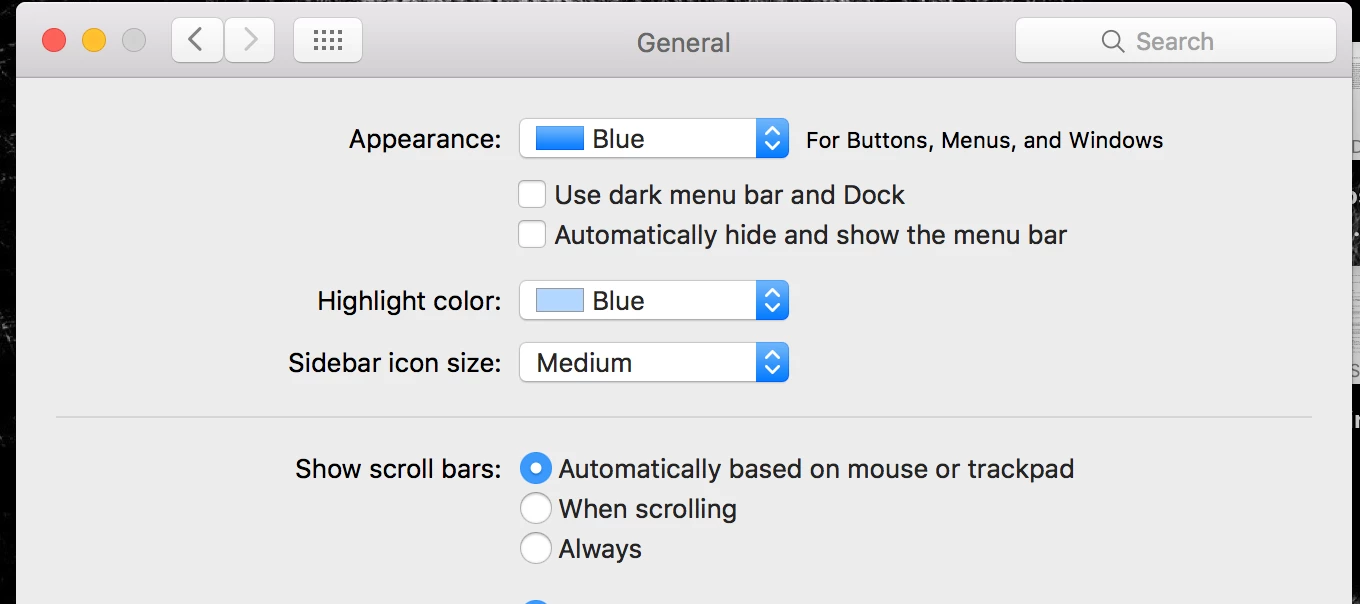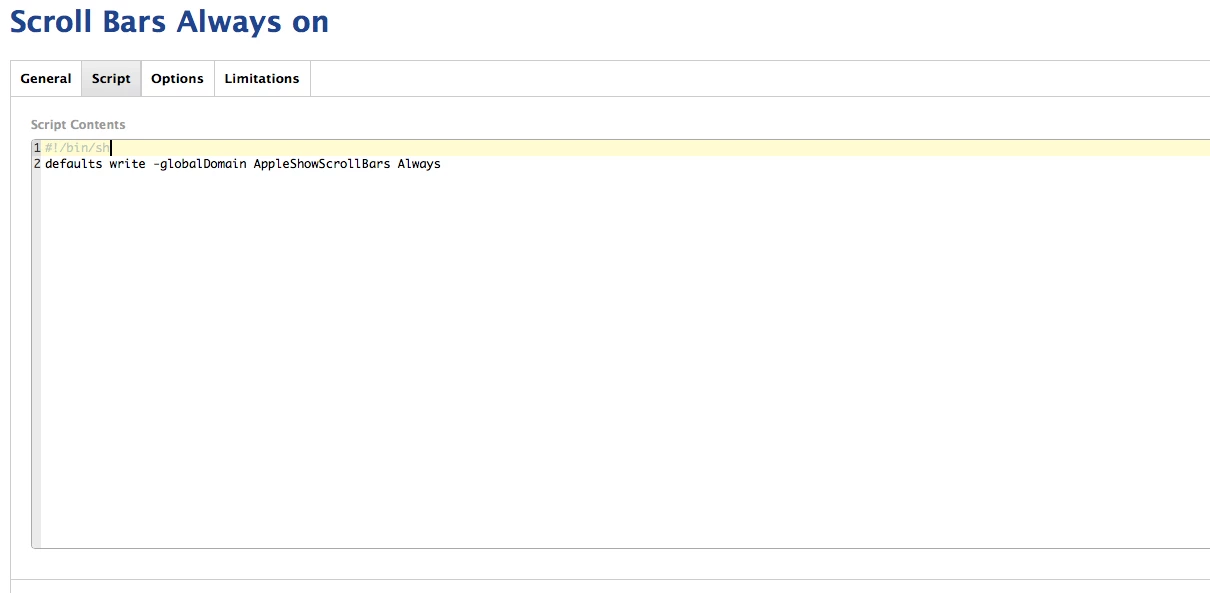I am looking to change all of my users System preferences --> General --> set 'Show scroll bars' to 'Always'. I didnt see it in "managed Preferences" so I am wondering how to set this in jamf for my users.
Solved
Need help with System Pref General Setting
 +11
+11Best answer by gda
[~ NealIV] To write into users .GlobalPreferences.plist use
defaults write -globalDomain AppleShowScrollBars -string "What ever you want to set"From root user:
sudo -u username defaults write -globalDomain AppleShowScrollBars -string "What ever you want to set"@mm2270 Unfortunately
defaults write -currentHost ...will write in to ByHost prefs, but not in .GlobalPreferences.plist
Enter your E-mail address. We'll send you an e-mail with instructions to reset your password.







